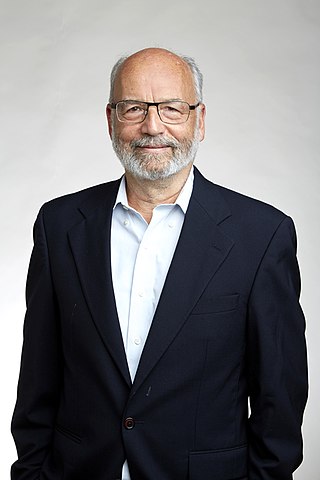
Adi Shamir is an Israeli cryptographer and inventor. He is a co-inventor of the Rivest–Shamir–Adleman (RSA) algorithm, a co-inventor of the Feige–Fiat–Shamir identification scheme, one of the inventors of differential cryptanalysis and has made numerous contributions to the fields of cryptography and computer science.

Leonard Adleman is an American computer scientist. He is one of the creators of the RSA encryption algorithm, for which he received the 2002 Turing Award. He is also known for the creation of the field of DNA computing.
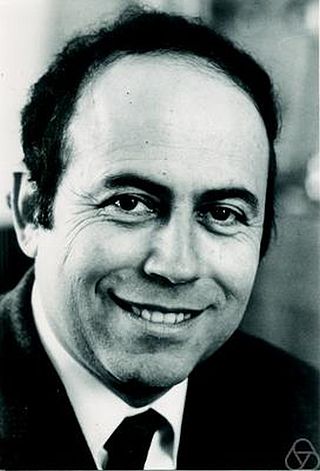
Michael Oser Rabin is an Israeli mathematician, computer scientist, and recipient of the Turing Award.

Richard Manning Karp is an American computer scientist and computational theorist at the University of California, Berkeley. He is most notable for his research in the theory of algorithms, for which he received a Turing Award in 1985, The Benjamin Franklin Medal in Computer and Cognitive Science in 2004, and the Kyoto Prize in 2008.

Charles Eric Leiserson is a computer scientist and professor at Massachusetts Institute of Technology (M.I.T.). He specializes in the theory of parallel computing and distributed computing.
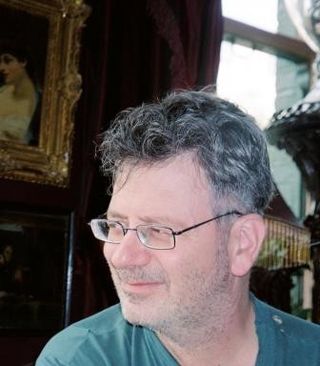
Oded Goldreich is a professor of computer science at the faculty of mathematics and computer science of the Weizmann Institute of Science, Israel. His research interests lie within the theory of computation and are, specifically, the interplay of randomness and computation, the foundations of cryptography, and computational complexity theory. He won the Knuth Prize in 2017 and was selected in 2021 to receive the Israel Prize in mathematics.

Andrei Zary Broder is a distinguished scientist at Google. Previously, he was a research fellow and vice president of computational advertising for Yahoo!, and before that, the vice president of research for AltaVista. He has also worked for IBM Research as a distinguished engineer and was CTO of IBM's Institute for Search and Text Analysis.

Mario Szegedy is a Hungarian-American computer scientist, professor of computer science at Rutgers University. He received his Ph.D. in computer science in 1989 from the University of Chicago after completing his dissertation titled Algebraic Methods in Lower Bounds for Computational Models. He held a Lady Davis Postdoctoral Fellowship at the Hebrew University of Jerusalem (1989–90), a postdoc at the University of Chicago, 1991–92, and a postdoc at Bell Laboratories (1992).
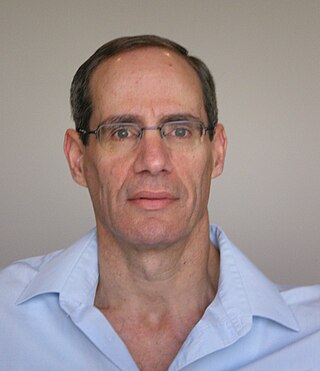
Noga Alon is an Israeli mathematician and a professor of mathematics at Princeton University noted for his contributions to combinatorics and theoretical computer science, having authored hundreds of papers.

Avi Wigderson is an Israeli computer scientist and mathematician. He is the Herbert H. Maass Professor in the school of mathematics at the Institute for Advanced Study in Princeton, New Jersey, United States of America. His research interests include complexity theory, parallel algorithms, graph theory, cryptography, distributed computing, and neural networks. Wigderson received the Abel Prize in 2021 for his work in theoretical computer science. He also received the 2023 Turing Award for his contributions to the understanding of randomness in the theory of computation.

Michael George Luby is a mathematician and computer scientist, CEO of BitRipple, senior research scientist at the International Computer Science Institute (ICSI), former VP Technology at Qualcomm, co-founder and former chief technology officer of Digital Fountain. In coding theory he is known for leading the invention of the Tornado codes and the LT codes. In cryptography he is known for his contributions showing that any one-way function can be used as the basis for private cryptography, and for his analysis, in collaboration with Charles Rackoff, of the Feistel cipher construction. His distributed algorithm to find a maximal independent set in a computer network has also been influential.

Kurt Mehlhorn is a German theoretical computer scientist. He has been a vice president of the Max Planck Society and is director of the Max Planck Institute for Computer Science.

Gary Lee Miller is a professor of Computer Science at Carnegie Mellon University, Pittsburgh, United States. In 2003 he won the ACM Paris Kanellakis Award for the Miller–Rabin primality test. He was made an ACM Fellow in 2002 and won the Knuth Prize in 2013.
Piotr Indyk is Thomas D. and Virginia W. Cabot Professor in the Theory of Computation Group at the Computer Science and Artificial Intelligence Laboratory, Massachusetts Institute of Technology.

Cynthia Dwork is an American computer scientist best known for her contributions to cryptography, distributed computing, and algorithmic fairness. She is one of the inventors of differential privacy and proof-of-work.
Michael David Mitzenmacher is an American computer scientist working in algorithms. He is Professor of Computer Science at the Harvard John A. Paulson School of Engineering and Applied Sciences and was area dean of computer science July 2010 to June 2013. He also runs My Biased Coin, a blog about theoretical computer science.
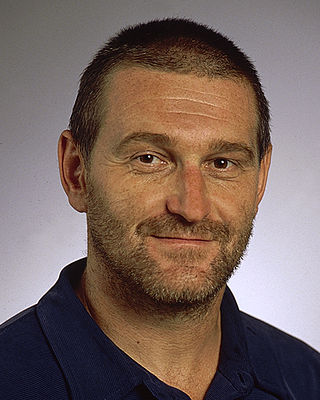
Pavel Arkadevich Pevzner is the Ronald R. Taylor Professor of Computer Science and director of the NIH Center for Computational Mass Spectrometry at University of California, San Diego. He serves on the editorial board of PLoS Computational Biology and he is a member of the Genome Institute of Singapore scientific advisory board.

Rodney Graham Downey is a New Zealand and Australian mathematician and computer scientist, an emeritus professor in the School of Mathematics and Statistics at Victoria University of Wellington in New Zealand. He is known for his work in mathematical logic and computational complexity theory, and in particular for founding the field of parameterised complexity together with Michael Fellows.
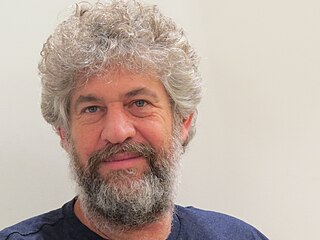
Noam Nisan is an Israeli computer scientist, a professor of computer science at the Hebrew University of Jerusalem. He is known for his research in computational complexity theory and algorithmic game theory.
Leonard J. Y. Schulman is professor of computer science in the Computing and Mathematical Sciences Department at the California Institute of Technology. He is known for work on algorithms, information theory, coding theory, and quantum computation.
















